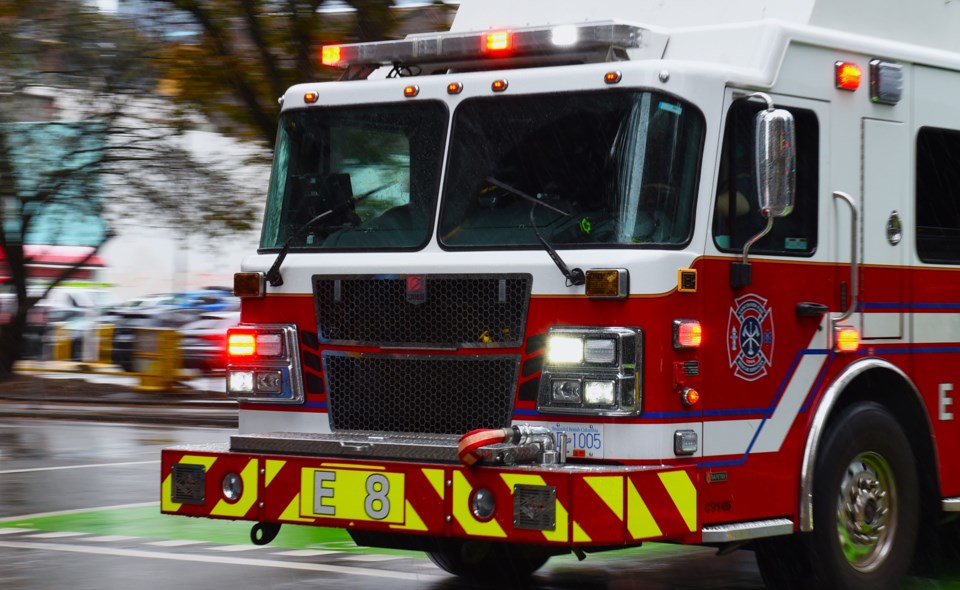With a cold snap in Â鶹´«Ã½Ó³»dropping temperatures in the city as low as -16 C in parts of Vancouver, and potentially colder in the metro area, many people will be looking for ways to heat their home.
Â鶹´«Ã½Ó³»Fire Rescue Services (VFRS) is urging people to make smart and safe preparations for the cold.
"Anytime it gets cold like this we're asking people to really be mindful of the heating choices they're making," VFRS spokesperson Matthew Trudeau tells V.I.A.
He notes that with any change in weather, the fire department sees an increase in calls. With the incoming cold snap, he notes there are concerns about how people heat their homes.
The bad ideas: Don't use your oven, candles, or camping stoves to heat your house
There are several things people should avoid. Some are more obvious than others.
"We have seen instances of people with very risky behaviours," he says. "Like using the oven as a heater."
Ovens are meant to heat food, he reminds the public, and aren't good at warming a larger area.
VFRS has also noticed some people will use a large number of candles in an attempt to heat an area.
"It's a significant hazard inside," Trudeau says. "It's not a good heating method."
A source in a recent SRO fire that injured two people including a Â鶹´«Ã½Ó³»firefighter, and Trudeau notes that's not uncommon. Candles need to be kept under observation when they are used, he adds, and are at risk of being knocked over. And more candles increase the risk.
Using anything meant to be used outdoors or with liquid fuel, including propane, is dangerous as well, for a variety of reasons. For one, an open flame is always dangerous indoors and anything that can ignite needs to be kept away.
For another, burning anything means an increase of deadly carbon monoxide.
Trudeau notes he's heard of camping stoves being used to heat homes.
"The device isn't appropriate for indoor use," he says.
In addition, locals should be aware that there are bylaws regulating the use of propane in Vancouver; it's against fire bylaws to use propane indoors.
"Propane still produces carbon monoxide gas and it's a combustible liquid," Trudeau explains. "They're safe when they're used appropriately, but that's not to be inside for heating purposes."
"That would be very bad."
The useful things: Clothes, blankets, approved space heaters
The lowest-risk items to use to stay warm should be obvious. Extra clothes and blankets have zero risk of fire. Trudeau notes a hot water bottle is good too, adding that the water doesn't have to be boiling.
Bathing to warm up is also a low-cost and relatively quick option.
To warm up an area, space heaters are an option, but they should be CSA-approved.
"Most people are turning to portable heaters which is a good option if internal temps aren't adequate," Trudeau says. "But you should be mindful of not going to a cheaper alternative that's an online version that's not approved for Canadian use."
Among other things, heaters approved for use in Canada have a sensor to turn off the heating component if the heater has been knocked over; that's nto a global standard. Adequate wiring can be an issue, too.
Also, they should be kept away from anything combustible, and someone should be in the room with them at all times.
"If you walk away, turn these off, blow out candles, unplug the battery charger," Trudeau says.
Maintenance is key
There are a few other tips Trudeau has to keep a home safe.
For those using a wood-burning fireplace or stove with a chimney, make sure it's recently been cleaned.
Also, make sure fire alarms are working, as the batteries may need to be replaced.
For Â鶹´«Ã½Ó³»renters, there are laws and bylaws around for a building.
Trudeau also warns that people should pay attention to where they're plugging heating devices in.
"The device should be plugged right into an outlet," he says, rather than using an extension cord. "They do require higher amperage because of the draw; stacking devices, you're going to increase the resistance in it."
That could cause circuits to fail and breakers to pop.
Beware the thaw: The perils of post-freeze flooding
One issue that is somewhat unique to Â鶹´«Ã½Ó³»in Canada occurs after the freeze as the city begins to thaw out.
Many sprinkler systems in Â鶹´«Ã½Ó³»and the area have water in them at all times, which can freeze. At the city's coldest times, it's not an issue; the problem happens when things warm up.
"The thaw will break a lot of piping, cause flooding and sprinkler systems for buildings to activate," says Trudeau. More damage can occur if things freeze again after the water soaks an area.
When it thaws, pipes can burst. This can cause sprinkler systems to go off and flooding in places like underground parkades.
In other parts of the country, sprinkler pipes contain pressurized air in exposed areas.



